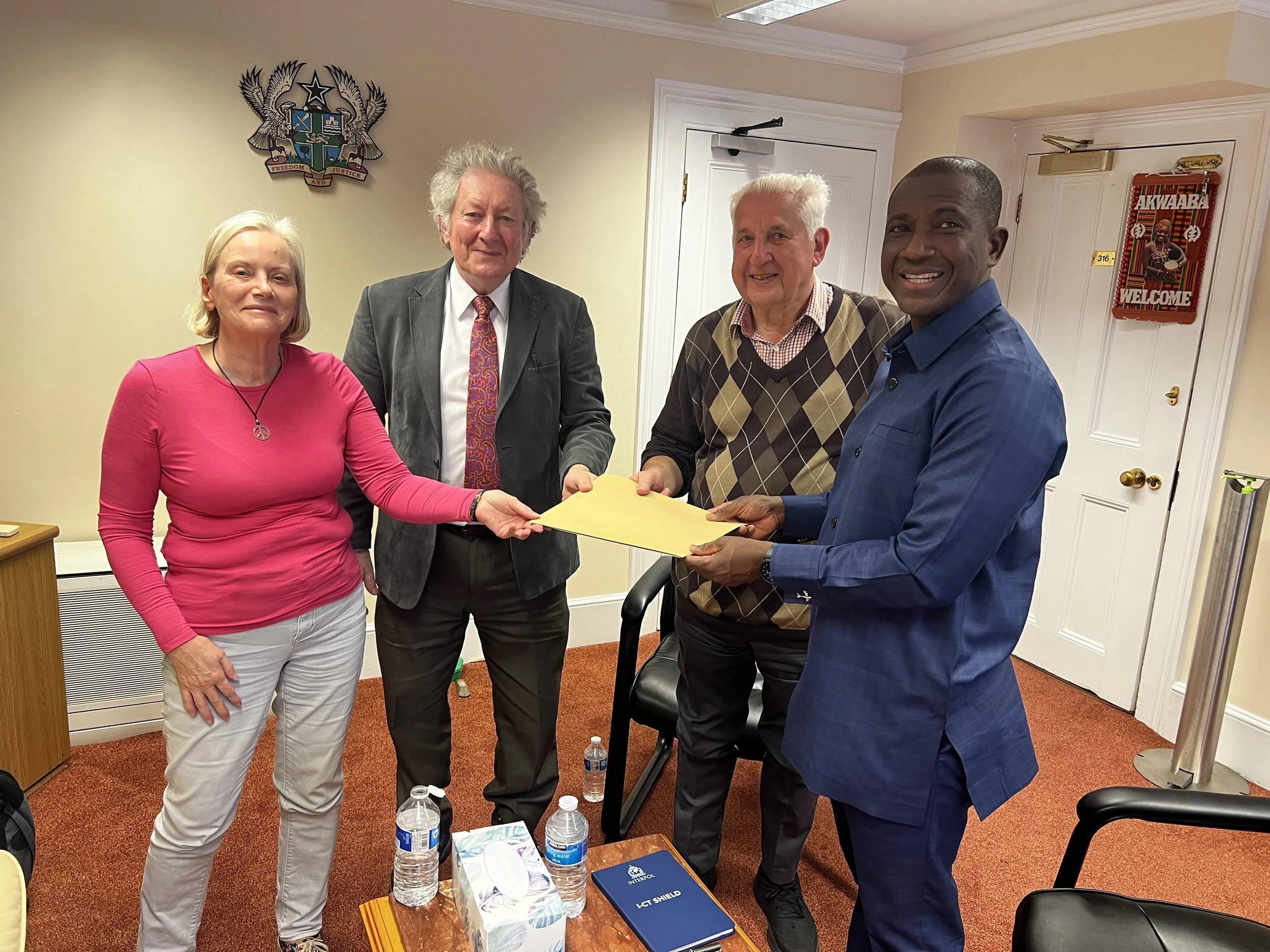At the conference, I heard Japanese and Korean Hibakusha share their memories of the 6th and 9th August 1945, and the struggles of the weeks, months and years following. In these accounts I heard of tragic loss and heartbreak; of living in fear of illnesses developing in later life; and of the stigma women faced due to misinformation that radiation sickness was contagious. Toshiko Hamamako, a second generation hibakusha writes:
One of the biggest fears among hibakusha is not being able to get married. Normal Japanese people do not want to marry us because they fear our children will not be healthy. This is a stigma that we, especially women, want to avoid.
Baek Mi-sun of South Korea, gave another example of how women were specifically affected by war. She spoke about how Korean women were forced into sexual slavery as ‘comfort women’ for soldiers, and how reparations have still not been made:
The establishment of the Reconciliation and Healing Foundation has done nothing but deceive victims. The victims of Japanese military sexual slavery are aware of this cheating and have resisted. One of the victims, who is over 90- years old, is protesting and calling for the dissolution of the foundation.
Wars across the world affect the most vulnerable in society, often women and children. Statistics for gender based violence show dramatic increases during periods of conflict. War Child documents that:
In Yemen there has been a 70% increase in reports of sexual violence.
In the Democratic Republic of Congo, 48 women are raped every hour.
In Syria, orphanages are opening to care for children born of rapes perpetrated by ISIS fighters on Yazidi women.
Back home, austerity policies have hit women the hardest, with women of colour worst off. A study by the Women’s Budget Group and the Runnymede Trust shows that:
Asian women in the poorest third of households lost on average 19% of their income.
Black women in the poorest households lost 14% of their income.
Black and Asian lone mothers lost 15 and 17% of their income.
Yet the Government seems to have endless money for war, whilst cutting social spending. They are replacing the Trident weapons system for the fantastical cost of £205 billion. To put this in context, £205 billion would be enough to build 120 state of the art hospitals and employ 150,000 new nurses, build three million affordable homes, install solar panels in every home in the UK or pay the tuition fees for eight million students.
Jinyoung Kim, a second delegate from South Korea to the World Conference Against A&H Bombs, comments:
In Korea, where two year long military service is mandatory for all men, militarism and patriarchy are strengthening each other.
You only have to look to the US to see militarism and patriarchy are hand in hand. Nuclear weapons continue to be positioned as a symbol of strength by a racist and misogynist leader, and now ‘American dominance in space’ is sought, with a space force in development.
Chloé Meulewaeter of the Centre Delàs of Studies for Peace, in Spain, writes:
Increases in the production and export of military and nuclear weapons, have an impact on the security of communities in the countries in which they are used, and generate gender-specific damages in contexts of conflict.
And this expansion is now by-passing Parliamentary scrutiny in the UK. The UK Defence Secretary confirmed last month that it is working with the US to develop a new nuclear warhead, as part of the Trident replacement programme. Let’s not forget that the current warheads are all around eight times as destructive as the bomb which in 1945 killed between 100,000 and 180,000 people in Hiroshima alone. This secret deal for new warheads was made via the UK-US ‘special relationship’, without seeking approval from Parliament. To add to this, Johnson wants to overhaul Britain’s role in the world and has announced a review that will ‘identify the necessary reforms to government systems and structures to achieve these goals’.
But it is possible to stop this! We must remember the successes hard won by the peace movement so far. Biological weapons are banned. Land mines are banned. Cruise missiles were sent packing.
And so this International Women’s Day, let’s remember the achievements of those women at Greenham Common Peace Camp, some of whom are with us today. They made tremendous sacrifices to prevent Cruise Missiles being stored in the UK, and were vilified by the press on the basis of their gender in the most appalling manner. They showed immense courage and creativity, keeping hope for the 19 years the camp was open. In tribute to this, I’ve created a short audio piece from an interview I conducted with Jill Truman, who kindly shared memories of Greenham with me.




















